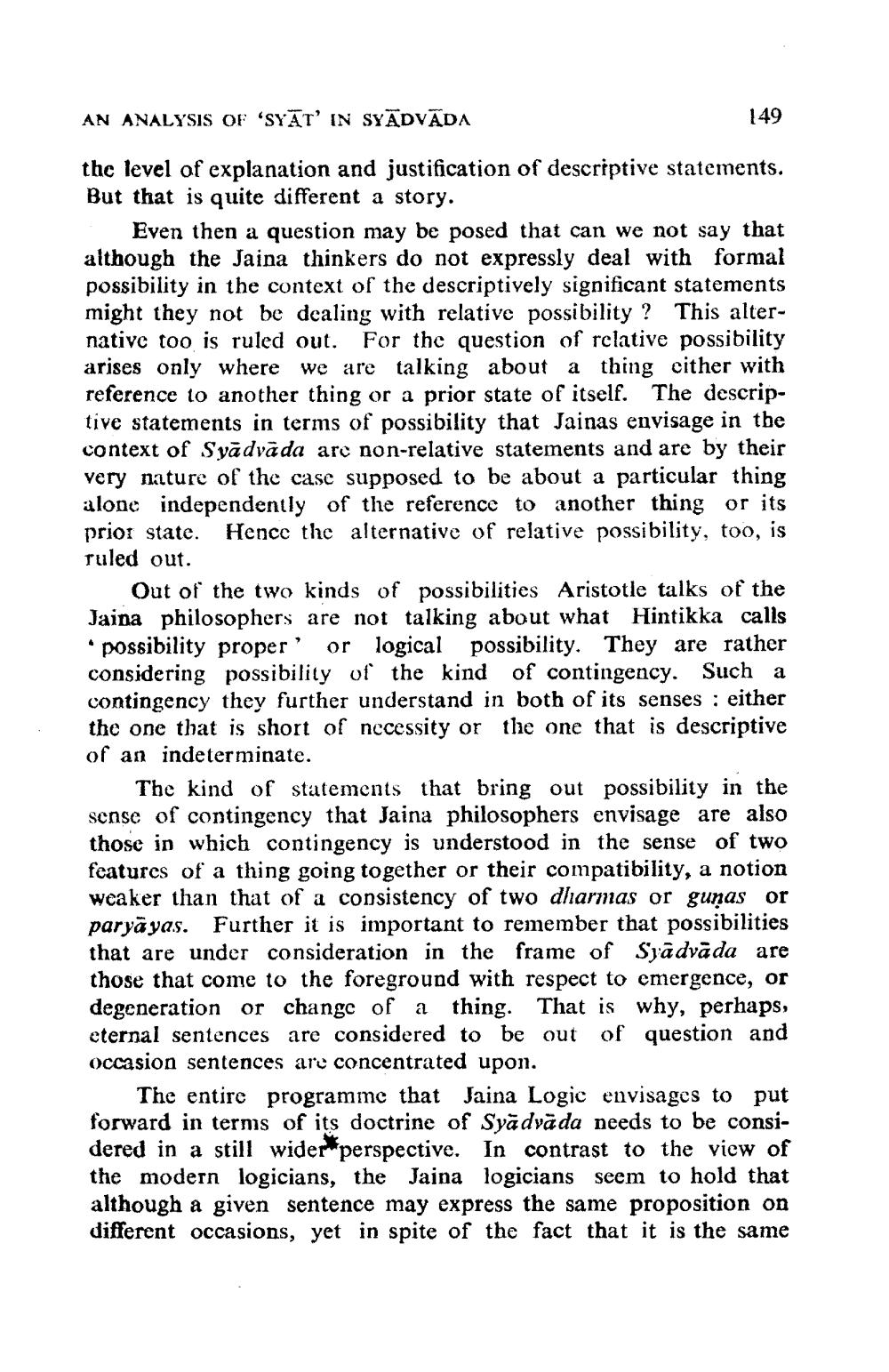________________
AN ANALYSIS OF 'SYĀT' IN SYĀDVĀDA
149
thc level of explanation and justification of descriptive statements. But that is quite different a story.
Even then a question may be posed that can we not say that although the Jaina thinkers do not expressly deal with formal possibility in the context of the descriptively significant statements might they not be dealing with relative possibility ? This alternative too is ruled out. For the question of relative possibility arises only where we are talking about a thing cither with reference to another thing or a prior state of itself. The descriptive statements in terms of possibility that Jainas envisage in the context of Syādvāda are non-relative statements and are by their very nature of the case supposed to be about a particular thing alone independently of the reference to another thing or its prior state. Hence the alternative of relative possibility, too, is ruled out.
Out of the two kinds of possibilities Aristotle talks of the Jaina philosophers are not talking about what Hintikka calls * possibility proper' or logical possibility. They are rather considering possibility of the kind of contingency. Such a contingency they further understand in both of its senses : either the one that is short of necessity or the one that is descriptive of an indeterminate.
The kind of statements that bring out possibility in the scnse of contingency that Jaina philosophers envisage are also those in which contingency is understood in the sense of two features of a thing going together or their compatibility, a notion weaker than that of a consistency of two dlarmas or gunas or paryā yas. Further it is important to remember that possibilities that are under consideration in the frame of Syādvā da are those that come to the foreground with respect to emergence, or degeneration or change of a thing. That is why, perhaps, eternal sentences are considered to be out of question and occasion sentences are concentrated upon.
The entire programme that Jaina Logic envisages to put forward in terms of its doctrine of Syā dvāda needs to be considered in a still wider perspective. In contrast to the view of the modern logicians, the Jaina logicians seem to hold that although a given sentence may express the same proposition on different occasions, yet in spite of the fact that it is the same




